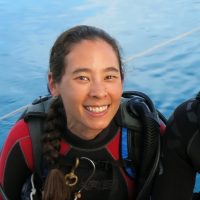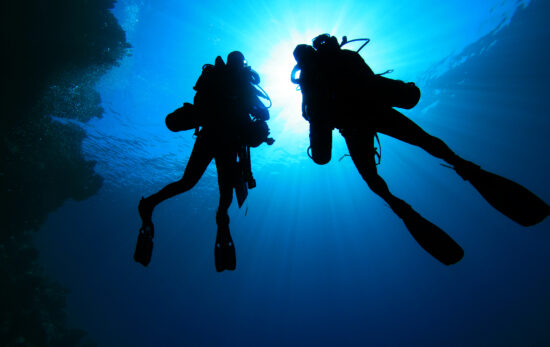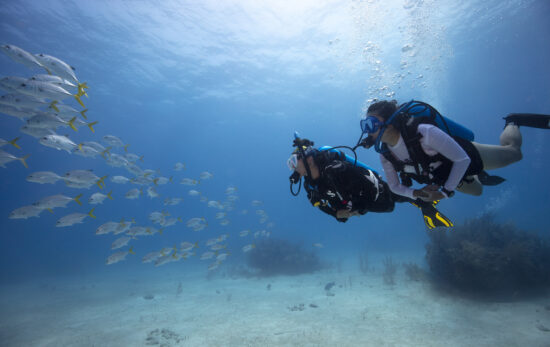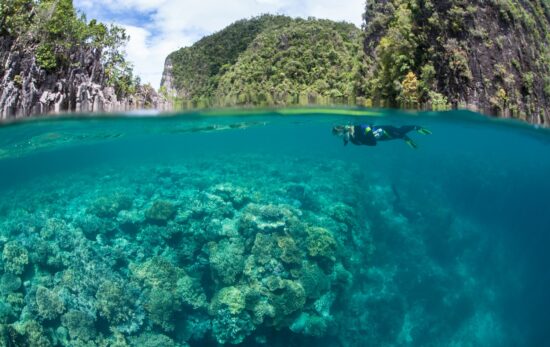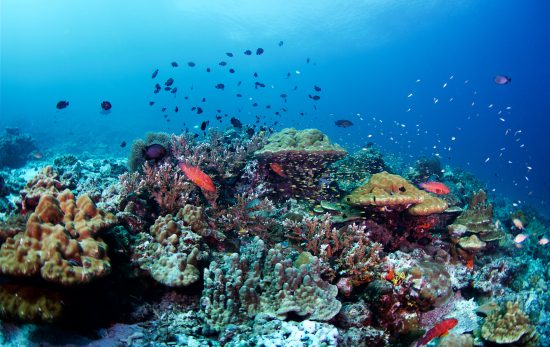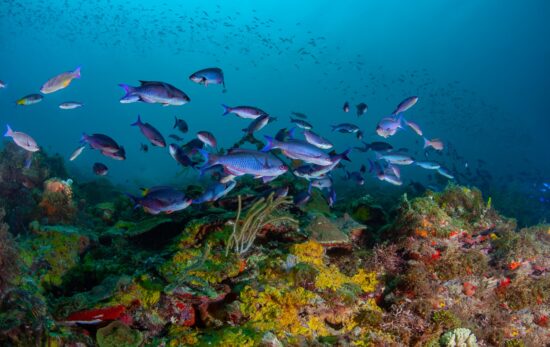The PADI AWARE Foundation™ is a publicly-funded nonprofit that drives global change through local action. In the past three decades, more than one million people have taken an AWARE conservation course to learn about threats to our oceans and how they can make a positive impact.
Why Take an AWARE Conservation Course?
Some divers don’t need a reason to learn something new. Personally, I want to learn everything I can about marine life and the underwater environment – it’s why I became a diver in the first place!
I also recognize some divers would rather spend every free moment diving versus taking a class. But keep in mind: these conservation classes are designed to help you get more out of every dive.
Would you like to:
- Get better at finding and identifying marine life?
- Reduce your air consumption and wear less weight?
- Feel more comfortable underwater?
- Inspire friends and family to care about the ocean as much as you do?
- Become a Master Scuba Diver™ ?
If you answered “yes” to any of the questions above, read on for a short description of the PADI specialty courses that focus on conservation. For pricing or additional info, please contact your PADI® Instructor, Dive Center or Resort.
AWARE Specialist
During this short, half-day course, you’ll learn about the problems facing our oceans and what actions you can take to preserve our beautiful blue planet. The AWARE Specialist specialty course was previously known as the Project AWARE Specialty.
“I believe we, as divers, have a moral obligation to do all we can for the ocean to safeguard it for future generations to enjoy. The AWARE Speciality course provides a better understanding of some of the issues the ocean is facing and what divers can do to help.” – Michelle Holland, PADI Elite Master Instructor and Dive Centre Manager at Excel Scuba (Tenerife, Spain)
This course is open to anyone who cares about the ocean
This dry, ‘fins off’ course is open to divers and non-divers alike. Through interactive discussions, you’ll develop an action plan for how you can make a positive difference through simple actions.
“Most newbies don’t realise that they can get involved in conservation straight away. They assume it’s only something experienced divers can do.” – Nic Emery, co-founder and PADI Course Director at Fifth Point Diving Centre (Northumberland, UK)
Coral Reef Conservation
In a single morning or afternoon, learn about the complex nature of life on a reef and how they protect both humans and fish. By the end of the Coral Reef Conservation specialty course, you’ll see the underwater world through new eyes.
“The PADI AWARE Coral Reef Conservation course explains what corals are, why they’re so important, how we can protect our reefs, and so much more,” said Rena Hall, Director of Conservation at Silent World Dive Center (Florida Keys, USA).
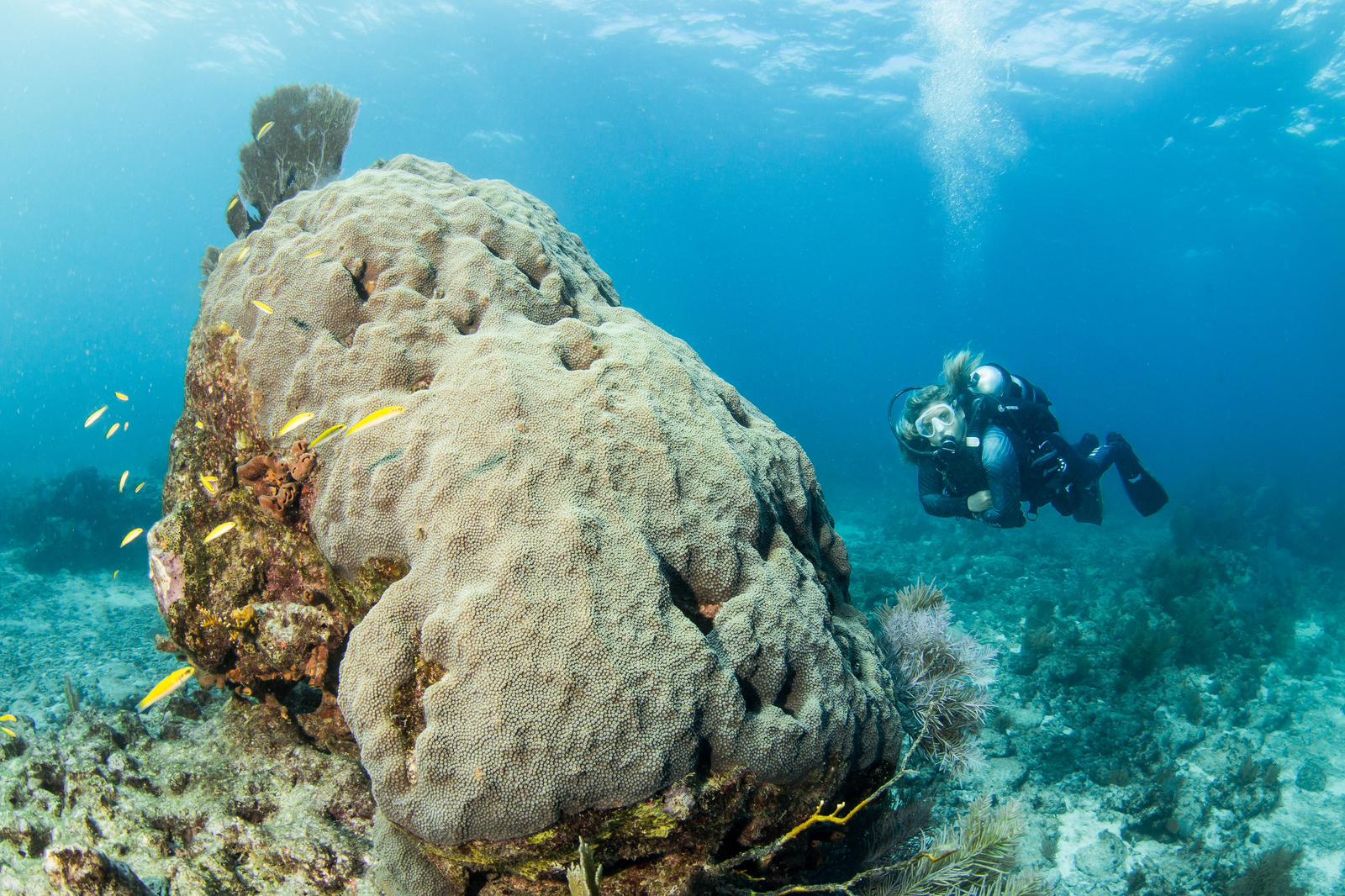
The Florida Keys are home to 45 species of stony corals and 35 soft corals. “Silent World Dive Center instructors Gabe and Mike always bring dive slates with them to identify the conditions the corals are in and what species,” Hall added
This course is open to anyone curious about coral.
There are no prerequisites, age restrictions or in-water sessions. Certified divers who want to learn about coral reef restoration and try some coral gardening, should search for the PADI Coral Reef Restoration Distinctive Specialty.
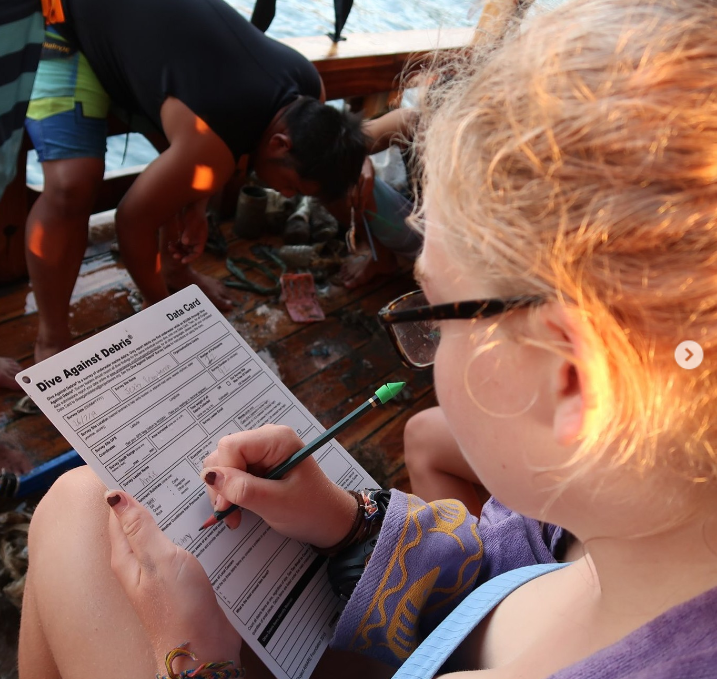
Dive Against Debris®
There are two common misconceptions about the Dive Against Debris specialty course. First, many students think it’s “just” a dive where you pick up trash. But one of the many important things you’ll learn during the course is which objects shouldn’t be removed from the ocean. For example, if you find a glass bottle covered in algae, the best choice may be to leave it in place.
The other misconception is that only certified divers can take the course. In fact, PADI Advanced Mermaid™ and PADI Freedivers™ (or those with similar, qualifying certifications) can collect and report marine debris data.
Once you know how to do it, reporting the marine debris you’ve collected is easy. The information becomes part of a global database used by policymakers and ocean advocates around the world.
At Abyss Ocean World in Bali, Dive Against Debris students sometimes find debris from as far away as Europe and the Americas. The divers return home with a powerful story to tell.
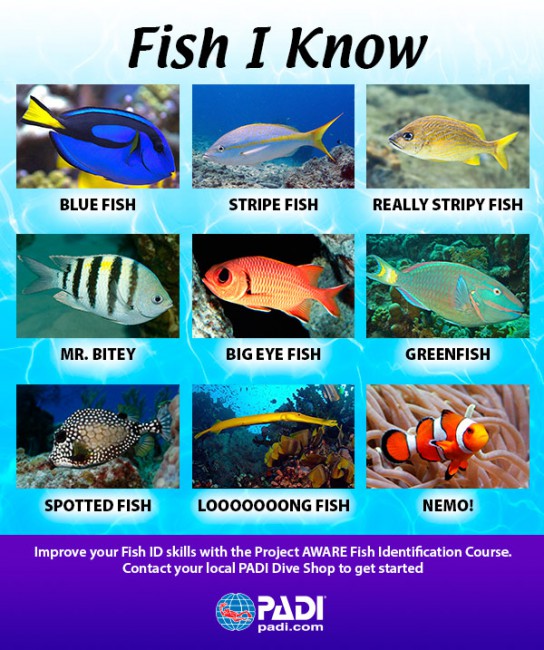
Fish Identification
In the PADI Fish Identification specialty course, you’ll learn how to identify fish all over the world in addition to the area where you do your training. Don’t worry, you won’t have to memorize an entire fish ID book!
Your instructor will teach you how to identify fish based on body shape, size, behavior and where you saw the fish (under a rock versus pecking at a coral head, for example). By the end of the course, you’ll be better at both identifying and finding interesting fish.
“Knowing what you’re seeing during a dive enhances your diving experience even further,” said Kelly Paterson, PADI Master Instructor and Fish ID Instructor at PADI 5 Star IDC Bocas Dive Center in Bocas Del Toro, Panama.
“In Bocas Del Toro, we have a massive variety of fish and creatures. Our dive leaders all take the PADI Fish Identification specialty to ensure our divers see everything that can be seen and enjoy a wealth of information about their dives,” she added.
Peak Performance Buoyancy
Buoyancy is a struggle for many new divers and some don’t even realize it. They think “I’m an airhog,” or “I guess I just need to wear more weight than everyone else.” Or worse, “I hope no one saw me accidentally kick the reef…”
The PADI Peak Performance Buoyancy specialty course (PPB) is one of the most valuable courses in the PADI specialty course lineup. It can help you carry less weight, observe marine life without disturbing their surroundings and use less air when scuba diving.
“A lot of students don’t see the benefit of the PPB course because they don’t believe they’re learning something new, compared to the wreck diver course for example,” said Jay Clue, conservationist and founder of Dive Ninja Expeditions (Cabo San Lucas, Mexico). “After taking the course? They see why it’s so important. Divers feel more confident, more comfortable and more in control. It’s amazing how much a diver can grow in such a short course with a good instructor.”
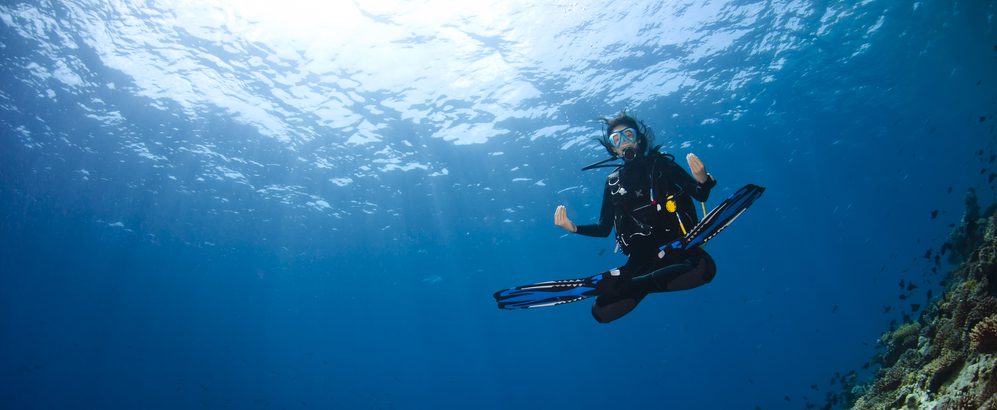
“Buoyancy is one of the most important skills to perfect for any diver. Having complete control of buoyancy and trim not only makes diving more comfortable and easier, it also helps us to protect the beautiful environments we dive in,” he added.
AWARE Shark Conservation
Whether you love sharks, are scared of sharks or are just curious about them, the AWARE Shark Conservation specialty course will increase your understanding of this widely misunderstood animal. This specialty includes two dives, but you are not required to see any sharks to earn this certification.
Learn how scientists monitor sharks and the important role they play in marine ecosystems and human economies. By the end of the course, you’ll know fact from fiction and be inspired to take action for shark conservation.
At Black Turtle Dive in Koh Tao, Thailand, students are introduced to the local black tip reef shark population at sandy bays around southeast Koh Tao. This shallow reef may not look like much, but it’s a critical habitat where mother sharks give birth to their young.
“During our Shark Conservation Diver specialty course, students develop a deeper understanding of the plight of sharks and their role in marine ecosystems and the health of our oceans,” said Matt Bolton, Marine Conservationist and PADI Course Director at Black Turtle Dive Koh Tao.
Need one more reason to take an AWARE conservation course?
If you’re a PADI Diver, all of these conservation specialty courses count toward your Master Scuba Diver™ rating. Complete five, and you could become an exceptionally rare Eco Master Scuba Diver.
The Ocean Needs Your Voice
Whether you’re a scuba diver, freediver, snorkeler or mermaid, you’re part of a growing global community of Ocean Torchbearers. You understand and appreciate the underwater world in ways others never will, and the ocean needs your help.
It’s going to take all of us to restore the balance between humanity and the ocean. These conservation courses will empower you to make a difference. You can also participate in local conservation activities or make a donation that supports the fight against marine debris, marine habitat loss and other critical issues.
